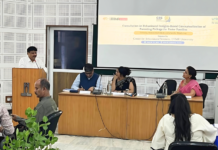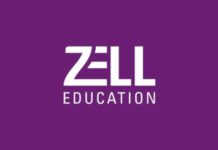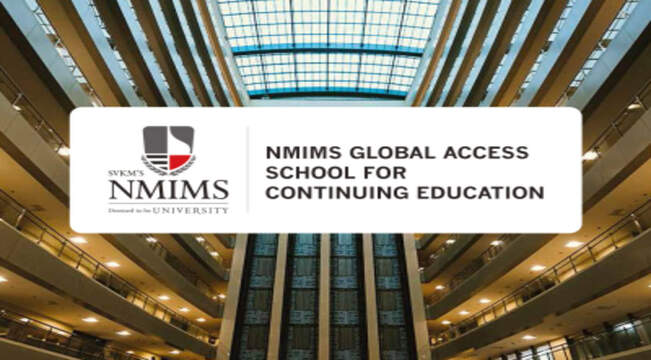New Delhi, June 19, 2020: Digital India vision of the Government of India seems to be an instrument in solving situation in present scenario, where every sector is caught in a crisis because of COVID-19. All the business activities have been put to halt. Everyone is talking about economy and GDP. It has badly affected even the education sector.
We all know that India is ranked 129th out of 180 countries on the Human Development Index (HDI) as per details released by UNDP. The School Education GER is approximately 74% and for Higher education it is 26.5% for 2018-19. Due to the Covid 19 crisis, there has been more pressure.
Many education institutes are shut down and this is putting lot of stress on students / youths for their education, admissions to career making courses, skill enhancement, employment opportunities etc. As per UNESCO report, as on date 157 crore students across the globe are facing a do-or-die situation in terms of education delayed / denied resulting into disruption in education because of country wise closures / no action in 188 countries
The pandemic Covid-19 has made all of us in last 3 months, to plan and organize our education system. The education is bound to change. Now, our policy makers, accreditation bodies, citizens and youth have to work in tandem with open mind. Although few of the actions which pandemic has taught us or teaching us, were planned or thought while planning new Education policy last year and while framing Digital India policy / framework in 2014.
Given the time on hand, it is a great opportunity for students and youth to finally get things of their perennial to-do-list, a chance of getting more efficient, productive and develop new and improve on professional skills/ knowledge by learning online as well as assessing online.
The lockdown has accelerated adoption of digital technology. The business houses, education institutes, educationist, Analytics, computer power, data management methods, Online education solutions etc are forced to work in tandem and improve upon in quality, delivery time etc , so as to handle such situations. The outbreak has presented new roadblocks for the Indian workforce and specially for the daily wage and contractual workers. In these bleak times, it is more important than ever before, to be up-skilled and be prepared to prove yourself again; as the saying goes “ when the going gets tough, the tough gets going”
It is also a fact that the technology use for education is now resulting into different concept in education system ie from teacher centric education to student centric education. The Black Board education system to get replaced with Online education system giving more flexibility to teachers and also students. As the lectures can be recorded and used at later time. This will allow teachers to work from home and even will allow us to get the best teachers for all according to the reports published in expresscomputer.in.
The boundaries of classroom will go beyond expectation and even the quality education system will be available to all. Even this will allow professionals also to share their experience while on the job with real life experiences and practical. But then definitely, the accreditation bodies, policy makers need to change or revise the accreditation criteria for student to teacher ratio, class room size, qualification of Professor etc. And this demand of time, Geographical limits of Campus of School, College, University will go away.
We have been talking about virtual classroom but in fact the engagement between teacher student is real. This is making student connection throughout life on 24X7 basis, may be keeping all physically distance ie social distancing to fight with COVID-19.
Pedagogy of education in the digital education is an important link between course contents, educationist, technology and course taker in a classroom education is different from technology based education.
Democratization of technology is now an important issue in present scene which include internet connectivity, telecom infrastructure, affordability of online system, availability of laptop/desktop, software, education tool, online assessment tools etc etc. But it is a fact that technology-based education is more transparent and does not make difference in front vs back bencher or girls vs boys.
Looking to this challenge of Colleges/Schools shutdown, Govt of India as well as State Governments, Private players have been publishing regularly in last few months on various initiatives being taken by ministries like MHRD, Department of Technical education, NCERT , State Governments etc on various initiatives/support by all stack holders for the benefit of youth/students.
The few of the initiatives are SWAYAM ie on line course for teachers, UG/PG MOOCs for non-technology courses, e-PG Pathshala e-content containing modules on social science, arts, fine arts, natural and mathematical science, CEC-UGC you Tube channel, Vidwan a database of experts who provide information about experts to peers, prospective collaborators, NEAT an initiative by AICTE based on PPP model to enhance the employability skill among students by collaborative approach with Education Technology Companies, National Digital Library (NDL) where repository of learning resources with single window facility is available. More details can be seen on MHRD, AICTE, NCERT websites. Many more noteworthy initiatives have been taken like Spoken Tutorial, Free and Open Source Software for Education (FOSSEE), e-Yantra, Google Class Room etc etc..
It is fact that Government of India as well State Governments through their Various Ministries/Departments have involved / planned for IT infrastructure also, the second most important pillar of e-Education. This mainly include National Knowledge Network (NKN), National Project on Technology Enhanced Learning (NPTEL), National Mission on Education Through Information and Communication Technology (NMEICT), Akash Tablet PC, National Academic Depository (NAD) etc etc. But, looking to facts that India has Internet penetration of app 31% as on date, Currently, we have 29 crore smart phone users, rural households with computers are 4.4%, urban households with computers are 23.4% and fact that only 17.6% of the youth could use a computer and 18.4% Could access internet, there is lot to be done in IT Infrastructure within country.
The online assessment agencies/Private business houses are also improving the product considering the limited bandwidth, and social distancing by managing remotely proctored examinations/skilling assessment.
Thus it seems that MHRD, UGC, AICTE are in process of right directions but now that need to be speeded up by amending Accreditation process, evaluation process, clear guidelines and mainly mind set. It is felt that Online education carry many advantages which we could see but few to mention are as follow. To combine classes or courses so as to have lectures from best teachers in the Globe on anywhere anytime basis. The Physical infrastructure of College, School, University will have less impact on education and thus directly on cost of education. It will be derived by IT Infrastructure and quality of faculty.
Review meetings, Parent Teacher meetings, Subject conferences will be location agnostic.The real vision of new Education Policy for liberal Education will get executed where a student can carry out courses from any College/ University based on quality of teacher and fees for the course irrespective of location and finally will get degree from the Home University where he / she got registered or from the University, where he has taken maximum courses. However, the fees will vary from student to student.
A concept of Digital university will come into existence.
But to draw out above, a drastic change in thought process is required which include change in mind set of Policy makers, Authorities, Bodies and specially educationist. Faculty selection shall be linked to technology friendliness and keenness for technology adoption. Similarly, Accreditation parameters, criteria need reconsideration. Especially the industrial experience for Directors /Vice Chancellors of Institutes/ Universities need to be included and accordingly guidelines to be amended.
It is felt that now role of parents specially mother will increase more for education of children till 3rd class.
— Dr Ashwini Kumar Sharma is an Engineering and Postgraduate in Computer Science with more than 35 experience in IT Industry/Education Institutes. He also worked as Director General for NIELIT, Govt of India. Presently, he is working as Pro Chancellor after working as VC of Vijaybhoomi University, Karjat, near Mumbai.
































